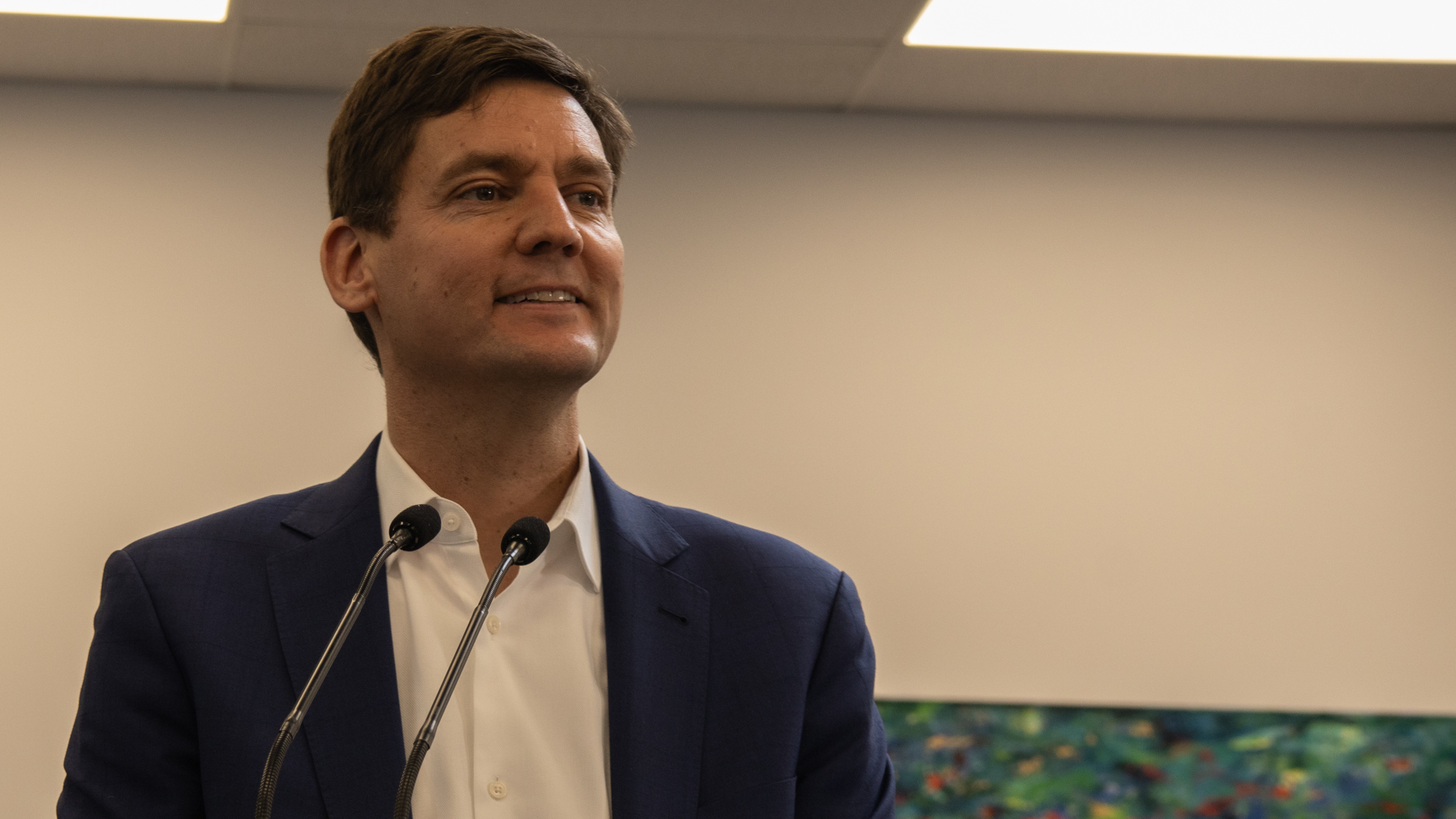British Columbia Premier David Eby visited campus today to announce plans for a new Wildfire and Education Training Centre at TRU.
“This centre will offer everything from basic training all the way through to post-doctoral work on fire behaviour and science so that we have a full range of expertise right here in British Columbia,” Eby said. “This will be a first-of-its-kind centre in North America, where people can get credits for this kind of educational work and this training towards an undergraduate degree.”
TRU will collaborate with the B.C. Wildfire Service on all major aspects of the program, ensuring students receive the most relevant training possible. Premier Eby said that curriculum design will begin this year, with the program launching in 2025.
“By 2028-29, over a thousand workshops will be offered [yearly], which will translate into 10,000 course registrations,” said Bruce Ralston, B.C. Minister of Forests.
With these new courses, a physical space will also be constructed on campus, though details regarding the future building, including cost and location, are currently unavailable.
“There will be a beautiful new facility housing these training programs,” Eby said. “The exact location of the building is yet to be determined, but it will be owned and operated by TRU.”
This announcement comes on the heels of TRU approving the Institute for Wildfire Science, Adaptation and Resiliency late last year. Eby said the university’s focus on wildfire research factored into this decision.
“The wildfire service already had this relationship with TRU around research. So it was natural for our government…that we would look to TRU because they already had the foundation in place,” Eby said.
In 2023, a record-setting 18.4 million hectares of fires burned across Canada. In B.C. alone, 2.8 million hectares were burnt, and over ten thousand British Columbians were forced to evacuate their homes, according to the province.
“Last year was the most devastating wildfire season on record, and it’s clear we need to do more to keep people safe from the impacts of climate change,” Ralston said.
With the current prevalence of wildfires, TRU appears to be poised to play a vital role in the years to come with its research capacity. According to TRU President and Vice-Chancellor Brett Fairbairn, this centre will also be crucial for the evolution of the university.
“We look forward to working side by side on initiatives that contribute to building a safer, more resilient future for our communities,” Fairbairn said. “This partnership reinforces TRU’s commitment to leading world-class research, training and innovation to improve how British Columbians adapt to living with wildfires.”

